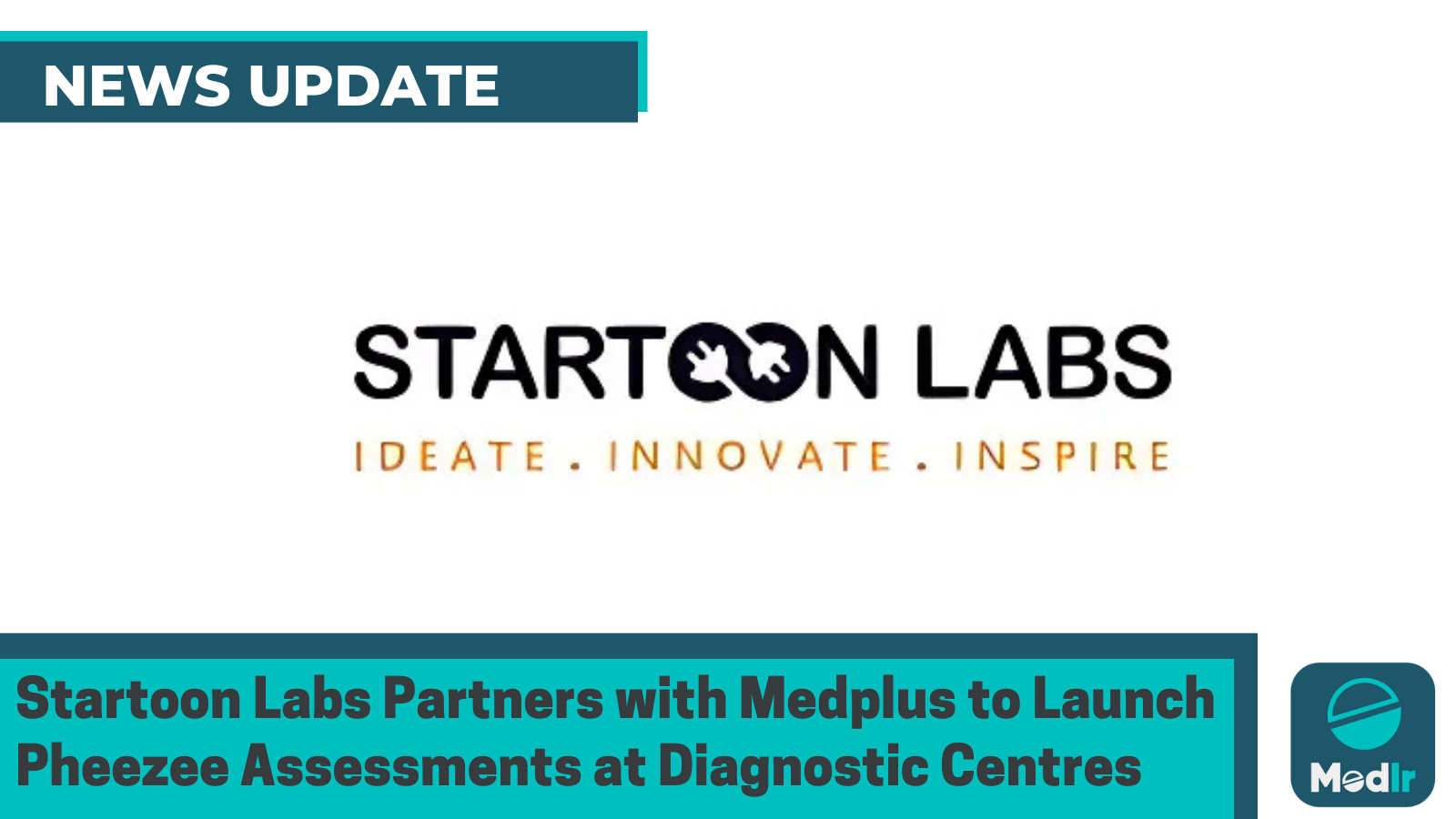Startoon Labs Partners with Medplus to Launch Pheezee Assessments at Diagnostic Centres
Written by Sirish Dixit
Startoon Labs collaborates with Medplus to introduce Pheezee, a wearable device that enables accurate physiotherapy assessments through AI-driven reports, helping identify pain sources and track patient recovery for joint and muscle health.

Hyderabad-based medical device innovator, Startoon Labs, has signed a Memorandum of Understanding (MOU) with Medplus to introduce its wearable health tech device, Pheezee, across Medplus diagnostic centres.
Pheezee is a non-invasive, USFDA-listed device designed to monitor joint and muscle health. Specifically developed to support patients undergoing physiotherapy, the device tracks their functional recovery and provides AI-powered reports. These reports offer insights into muscle conditions, impressions, and tailored recommendations, enabling physiotherapists to make accurate assessments and foster faster recovery.
One of Pheezee’s key capabilities is its pain diagnostic feature, which helps identify the exact root cause of discomfort—especially age or posture-related pain—by pinpointing the affected muscle. This helps healthcare professionals deliver targeted treatment rather than addressing the entire joint area, improving outcomes for those with musculoskeletal or neurological issues.
The device employs Electromyography (EMG) and Range of Motion (ROM) analysis to assess muscle activity and nerve function, aiding in precise diagnostics. It can detect a range of conditions such as arthritis, muscular dystrophy, and carpal tunnel syndrome in early stages, thus ensuring timely intervention and improved rehabilitation.
With this collaboration, Startoon Labs aims to make advanced muscle health assessments more accessible, supporting early diagnosis and enhancing physiotherapy effectiveness.